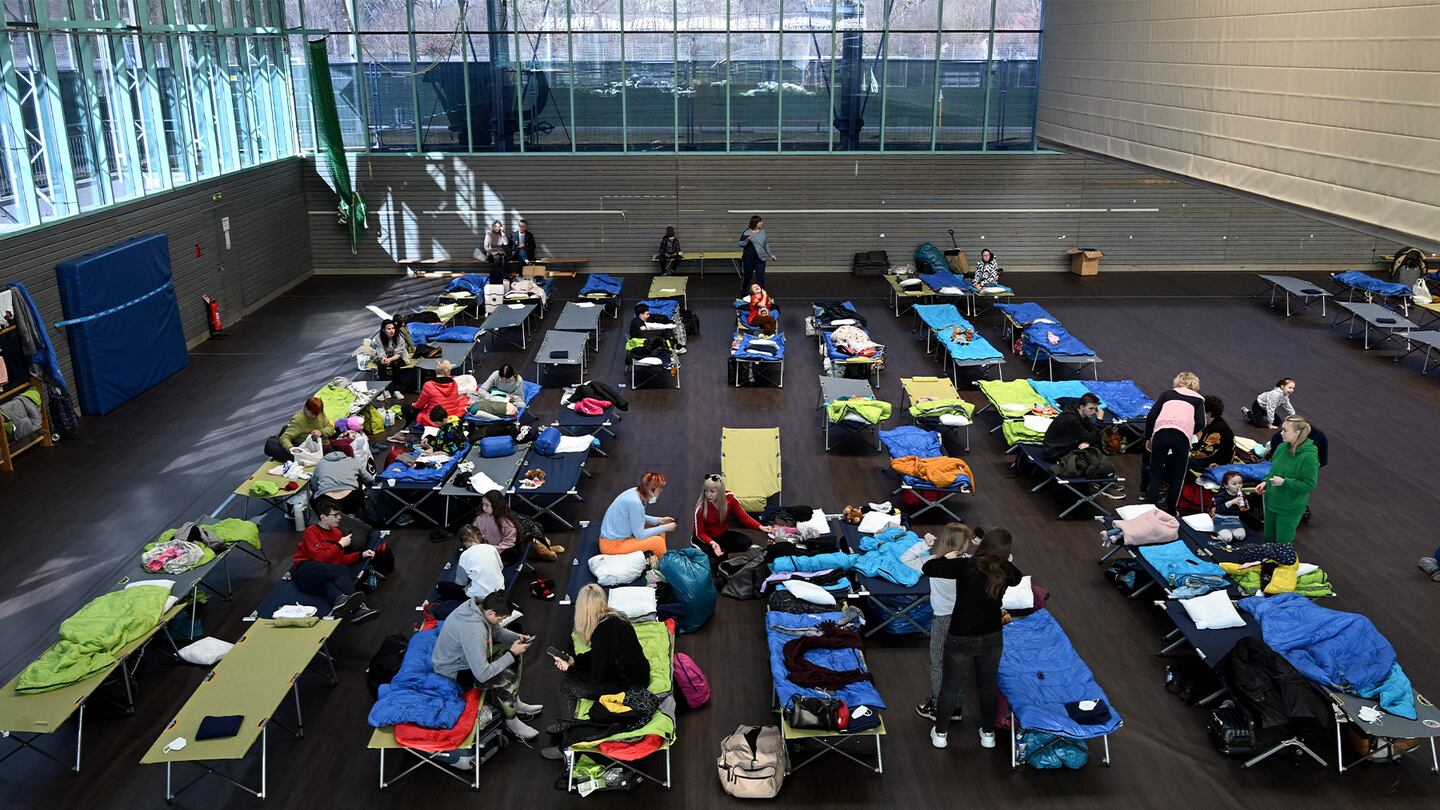
The Business of Fashion
Agenda-setting intelligence, analysis and advice for the global fashion community.

Agenda-setting intelligence, analysis and advice for the global fashion community.

On a cold February night, the departure hall at Kyiv’s Boryspil airport felt suspiciously quiet. One of the last to leave that night, my flight took off at 10:45 pm, landing in Milan’s Bergamo three hours later. It was now February 24th.
At 4:30am, Russia launched air strikes on my country, confirming what many in Ukraine feared but still believed would never actually happen. That morning, my phone was hot from receiving so many messages from family, friends and colleagues. There was a whirlwind of sentiment: panic, stoicism, hope.
As an editor, I decided to go on with my job. I remember attending my first Milan show, feeling punched in the stomach, then paralysed by what I saw: the usual air kisses and hugs amongst the well-groomed guests; camera phones up and ready to document Bella and Gigi on the runway; a large group of Russian editors sitting front row in full sartorial glory. In other words, business as usual.
The next few days were a blur. In between a flurry of shows and phone calls, I saw Financial Times “How to Spend It” editor Jo Ellison. We met for coffee. I couldn’t eat. Afterwards, she posted a recap of our conversation to her Instagram. The post hit a nerve. As the only Ukrainian editor at the shows, I was approached by CNN, The Evening Standard, Die Zeit, you name it.
ADVERTISEMENT
And yet most of those at the Milan shows seemed to stick their coiffured heads in the sand. War? What war? We want beautiful clothes. It took 87-year old Giorgio Armani to address the elephant in the room. Three days into the war, the designer staged two silent shows dedicated “to the people affected by the evolving tragedy.”
My return ticket to Kyiv was cancelled and my team and I decided that I should stay in Europe and move on to the Paris shows. At first, there was little suggestion that a war was raging on the same continent. But awareness spread, prompting a flood of statements and donations from individuals and large firms alike.
Demna’s Balenciaga was the only major fashion brand to tackle the war head on. I know not everyone approved of the show, finding the oversized t-shirts in the colours of our national flag, merched on every seat, insensitive. But to me, the show was important and brave. It proved that we as an industry can and should address what is happening in the world.
In retrospect, I think we got lucky — if luck is a word one can use in these circumstances — that the war broke out during fashion month, in the sense that the incongruence between fashion’s glittery runways and the war helped to jolt the industry into action.
Now, two weeks after the end of fashion month, Ukraine is still on the front pages of every newspaper, but is it still on the fashion industry’s mind?
This is where the real heavy-lifting starts. Donations are great. Messages of love and support are heartwarming. But they are just a painkiller for professionals in Ukraine’s fashion industry who desperately need support.
As the war goes on and our resources shrink, my Instagram inbox is full of messages from Ukrainian talents trying to figure out what to do next. Some of them have stayed put in Ukraine, where their main concern is simply survival; others have managed to leave but have little savings. What is going to happen to them and their livelihoods in a week? In a month? In a year?
Everyone I know is trying to support. 1Granary’s Olya Kuryshchuk and her team are helping to provide Ukrainians with work permits and places to live. Julie Pelipas has put up a website to help international companies recruit Ukrainian talent. I’m talking to Belgian, French and Italian fashion institutions to see how they can help with internships and tuition grants.
ADVERTISEMENT
There is so much that can and should be done. Every fashion business and every industry insider can contribute. Ultimately, what we need from fashion is opportunities. We are talented, hard-working people. We won’t just survive, we will shine.
Vena Brykalin is fashion director at Vogue Ukraine.
The views expressed in Op-Ed pieces are those of the author and do not necessarily reflect the views of The Business of Fashion.
How to submit an Op-Ed: The Business of Fashion accepts opinion articles on a wide range of topics. The suggested length is 700-1000 words, but submissions of any length within reason will be considered. All submissions must be original and exclusive to BoF. Submissions may be sent to opinion@businessoffashion.com. Please include ‘Op-Ed’ in the subject line and be sure to substantiate all assertions. Given the volume of submissions we receive, we regret that we are unable to respond in the event that an article is not selected for publication.
From Viviano Sue to Soshi Otsuki, a new generation of Tokyo-based designers are preparing to make their international breakthrough.
This week’s round-up of global markets fashion business news also features Latin American mall giants, Nigerian craft entrepreneurs and the mixed picture of China’s luxury market.
Resourceful leaders are turning to creative contingency plans in the face of a national energy crisis, crumbling infrastructure, economic stagnation and social unrest.
This week’s round-up of global markets fashion business news also features the China Duty Free Group, Uniqlo’s Japanese owner and a pan-African e-commerce platform in Côte d’Ivoire.